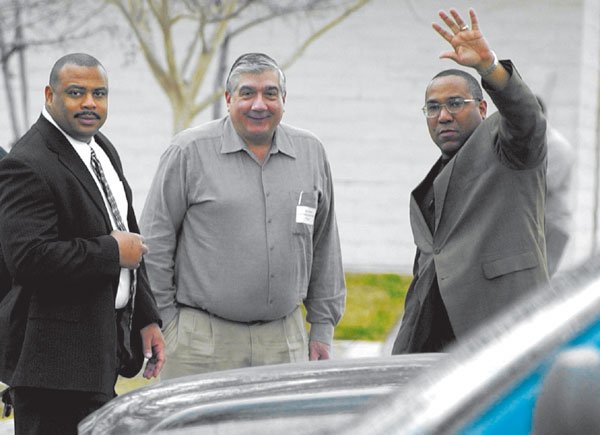Gilroy
– Two controversial development proposals involving Indian
tribes and untouched lands in San Benito and Santa Clara counties
have provoked an unprecedented gathering of regional leaders and
federal regulators.
Gilroy – Two controversial development proposals involving Indian tribes and untouched lands in San Benito and Santa Clara counties have provoked an unprecedented gathering of regional leaders and federal regulators.
On Tuesday afternoon, mayors from Gilroy, Hollister, and Morgan Hill learned from two officials with the Bureau of Indian Affairs that any project – whether a casino in Hollister or a golf course and luxury homes on the 6,500-acre Sargent Ranch in South County – would be subject to extensive environmental review.
Gilroy City Administrator Jay Baksa likened the environmental review to a “federal version of CEQA [California Environmental Quality Act].”
He said the presentation by two BIA officials took up the majority of the three-hour session, which also included an aide to U.S. Representative Mike Honda, Santa Clara and San Benito county officials, and area city managers.
“It was a lot of information given by the BIA as far as their procedures and how tribes … get recognized and acquire lands,” Gilroy Mayor Al Pinheiro said. “As a group, each one of us sitting at the table will have different impacts to consider.”
Local leaders have been trying to arrange the sit-down since August, when the five-member California Valley Miwok Tribe and Game Won, its private group of financiers, announced plans to build a casino in the Hollister area. A month after the Miwok announcement the public learned about a second development proposal involving a faction of the local Amah Mutsun tribe, which has struck a multi-million dollar deal that would enable developer Wayne Pierce to sidestep county zoning laws. That deal hinges on the Mutsun tribe gaining federal recognition and placing Sargent Ranch in trust, under the governance of tribal law.
The Miwok tribe is further along the bureaucratic trail than the Amah Mutsun, who have yet to even gain federal recognition. Late last year, the Mutsun tribe was able to place its federal petition for acknowledgment in the cue of groups ready for active review. The change in status was made possible in large part with a cash infusion from Pierce, who has spent hundreds of thousands of dollars in support of one faction of the tribe. But the Amah Mutsun will have to wait another decade before the government even begins reviewing their application, according to a BIA spokesman, unless Pierce convinces a U.S. Representative to sponsor immediate legislative recognition of the tribe. So far, no local congressional members have committed to that idea.
Pierce did not send a representative to the meeting.
But lawyers for the Miwok tribe attended Tuesday’s session in order to brief leaders on the status of their latest casino proposal, according to officials.
Miwok lawyer Phillip Thompson declined to comment on the nature of the discussions.
Unlike the Mutsuns, the Miwok tribe has federal recognition and is now looking to purchase land to place in trust. The tribe recently began its environmental analysis of a 200-acre site between San Felipe Road and Highway 156, across from the Hollister Airport. The tribe had originally proposed a spot off of Highway 25 near the Santa Clara County line, but scrapped the plans when local leaders and residents raised concerns about traffic and the environment.
Gov. Arnold Schwarzenegger has said he will not approve a gaming compact for the Miwoks unless the idea has overwhelming local support.
Rachael Gibson, a policy aide to Santa Clara County Supervisor Don Gage, said officials plan to meet with state officials in coming months to learn more about the compact process.
Tuesday’s session was held in City Council Chambers in Gilroy, and was closed to the public. Regional leaders first held a public forum on the Indian projects in Oct. 27, mapping out the questions they would seek to have answered by state and federal regulators.
“The one big thing we learned is that nothing’s going to happen overnight,” City Administrator Baksa said. “There’s time to analyze this in a logical manner.”













